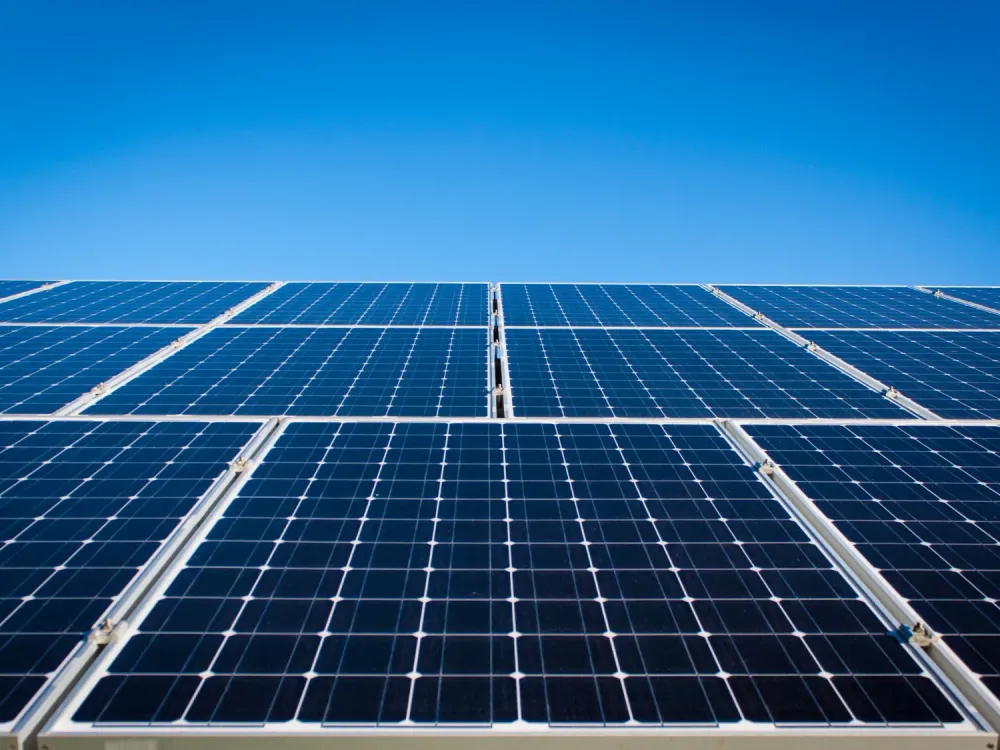
Solar panels.
The Economics of Solar Power: Costs, Incentives, and Return on Investment
The ever-increasing concern for environmental sustainability, coupled with the rising cost of traditional energy sources, has led many homeowners in the United States to consider harnessing the power of the sun with solar energy systems, especially in Arizona, Colorado, and California. The favorable climate here created all the conditions for an increasing solar panel installation.
Amid rising concerns about climate change and the depletion of fossil fuels, economic “competitiveness” or viability of solar generation has assumed a central stage in ongoing debates. This paper investigates the issues connected with solar power economics, such as sun energy expenses, equipment that promotes its development, and ROI for personal customers and companies.
Solar power offers promise in our search for clean, sustainable energy. A critical factor that is making solar power a standardized source of alternative energy for many uses is the cost associated with this form of technology which has drastically gone down. And within the last ten years, solar panel cost fell making solar energy available at lower rates than traditional sources of energy. This decline is attributed to the fact that technology has enabled this line of business, economies of large-scale production have made these companies engage in it and finally, with time their production efficiency has gone up adding to the driving force.
In the early 2000s, solar photovoltaic PV panels were expensive and thus not affordable for consumers and businesses. Nonetheless, since 2022, the cost of a single watt of solar panels has dropped drastically hence making it more affordable for use. Calculating solar panel wattage is another important factor in home economics.
Incentives for Solar Power Adoption
Governments worldwide also take a major role in various nations across the globe by marketing solar energy through different forms of incentives and subsidies. These target reducing the high initial costs of installation for solar systems while also providing an industry-friendly atmosphere where investments in renewable sources can be made by consumers and businesses.
The governments at federal and state levels make available various sorts of incentives to promote the use of solar power. This is the investment tax credit offered at the federal level, an incentive that offers a rebate on installation costs for solar systems. This lowers the amount that a homeowner would have to pay as his total charge, making solar energy viable.
In addition to the federal subsidies, most states provide their incentives or rebates and Arkansas is among those. The state’s rebates, tax credits, and other financial incentives aid homeowners to produce positive ROIs. When it comes to evaluating solar companies in Arkansas, it is necessary to pick a supplier that not only provides efficient panels but also offers professional installation services.
Moreover, there are other feed-in tariffs and net metering laws that encourage the use of solar technology. In this type of area, the surplus power that a solar system can consume is transferred to the grid therefore not storing it and users are rewarded for over contributions with credits or compensations. These incentives are not only aimed at encouraging people to use solar power but also give a chance for the owners of such systems to make some money.
With the large amounts of sun in Arizona and the government's encouraging policy, it has become one of the United States' leading solar states. In recent years, there has been a noticeable growth of solar installations in various buildings in this state. The state’s strong net metering policies can benefit homeowners in Arizona by allowing them to sell the power they do not need back to the grid.
The Business Case for Solar Power

The solar power economy goes beyond environmental issues and affects Businesses. Measures like solar energy can attract a lot of financial benefits if viewed strategically and here it is an option for future financial strength. This is brought about by the fact that on many occasions, the amount of money that would have been used to pay for such electricity bills is usually offset over time. With the cost of traditional sources of energy increasing steadily, companies that embrace solar power can make crucial savings in their operation costs as time progresses.
In addition, many businesses across the globe are incorporating corporate social responsibility (CSR) and sustainability as part and parcel of their organization. In addition, the adoption of solar power is not only consistent with a company’s environmental stewardship pledge but also improves its image before environmentally responsible customers. This goodwill can create customer loyalty and brand equity which gives a competitive edge in the market.
Return on Investment (ROI) Analysis
The ROI must be a central measure of economic feasibility, in any endeavor to invest especially in solar power. Factors that affect the ROI on solar installations include but are not limited to installation cost, kWh saving, government incentives (if any), and solar panel life cycle.
In general, residential solar projects take 6 to 10 years in payback time depending on location, system dimension, and local energy costs. This implies that only in the period consequent to start-up; the solar system will have made enough savings in energy to pay for installation. In fact, after this period, the system continues to generate power at reduced costs thereby continuing to impact positively on how the homeowner’s cash flow.
Homeowners should work with reputable companies and carefully analyze the financial aspects of their investments to ensure a positive and sustainable return on investment. When looking for the best available solar panel providers in the USA, it is essential to consider their pricing structures, warranty offerings, and customer reviews. For best available solar panel providers in the USA, it is essential to consider their pricing structures, warranty offerings, and customer reviews. For solar leads, which are potential customers interested in solar energy, it is important to turn to reputable providers with a track record of delivering quality products and services.
The Future Outlook
The economic landscape of solar power is constantly changing as technology improves, governmental insights evolve, and worldwide energy patterns shift. Interesting innovation changes, such as advances in solar energy storage solutions and higher quality of solar panels are likely to make the economy of this power source even more attractive.
Government policies will also be paramount in solar economics of the future. Further implementation of incentives, subsidies, and other legislative acts that serve in favor of this sector will boost further investments in solar technology. For example, for many solar energy companies Delaware became an ideal center for growth due to its government initiatives. To Sum Up, with the increasing call for environment-friendly and affordable solutions in energy provision, solar power can be singled out as one of the most viable options that an average homeowner in America would find ideal. It is important to know the economics of solar power including costs, incentives, and payback for them to be well informed.
To harness the maximum potential of solar energy, it's essential to understand how to choose right solar panel for your home. It is advisable to do in-depth research into the firms, look at customer reviews, and take advantage of tentative offers that come with solar power units. Given the continuous progress in technology and growing awareness of renewable energy, solar power is a sustainable choice not only for one’s environment but also as an economic move that thousands of people make across the entire country.


